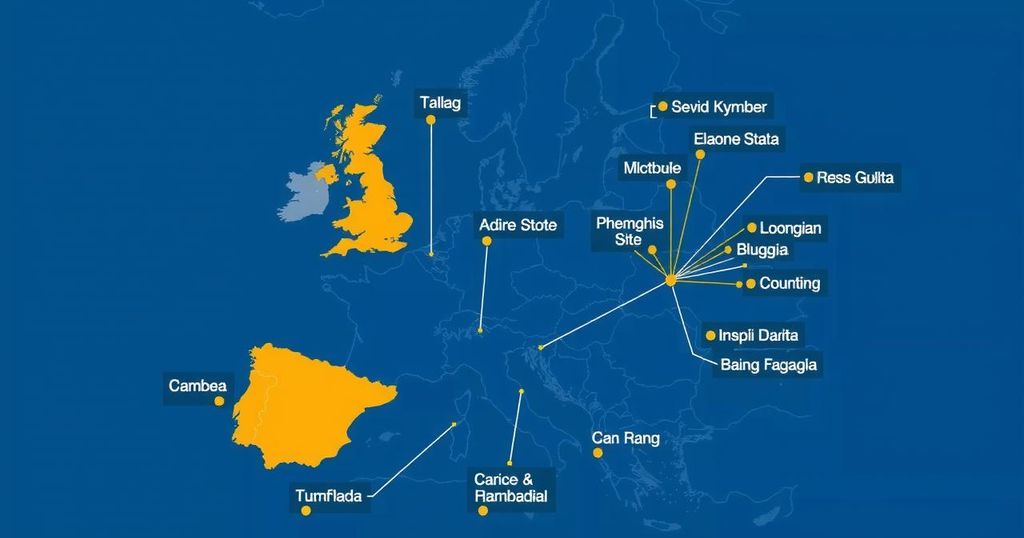EU’s Consideration of Third Countries for Unwanted Migrants: A Shift in Policy Strategy
The European Union is considering establishing ‘return hubs’ in countries like Uganda, Uzbekistan, and Albania to manage and deport rejected asylum seekers. This reflects the growing influence of anti-immigration parties within the EU following recent hard-right electoral successes. Challenges persist regarding the legalities and humanitarian implications of such policies.
The European Union (EU) is actively exploring options for housing migrants who have been denied asylum, following a recent summit where EU leaders endorsed the idea of “return hubs”. These hubs are reminiscent of a previous British initiative to relocate rejected asylum seekers to Rwanda. Countries such as Uganda, Uzbekistan, and Albania are being considered as potential locations for these hubs, amidst a backdrop of rising anti-immigration sentiments captured in the recent elections in several EU member states. Polands’s Prime Minister Donald Tusk has received informal support from the EU for suspending asylum rights due to increased border crossings from Belarus. This development illustrates the growing influence of hard-right factions within EU governance.
The EU is faced with the challenge of managing an influx of migrants while balancing humanitarian obligations and the rising political pressure to curb immigration. The bloc’s leadership is now reconsidering how to manage asylum seekers, especially in light of recent electoral successes by anti-immigration parties in member nations. The idea of return hubs is part of a broader strategy to expedite the deportation process and reduce the number of migrants present in the EU, reflecting a significant shift in policy orientation.
In summary, the EU is contemplating innovative methods for processing and deporting migrants who have not obtained asylum, with a particular focus on return hubs in third countries like Uganda and Uzbekistan. Despite the challenges associated with such policies, including legal and humanitarian concerns, the EU remains determined to implement measures that could redefine its approach to migration management in the coming years.
Original Source: www.thenationalnews.com




Post Comment